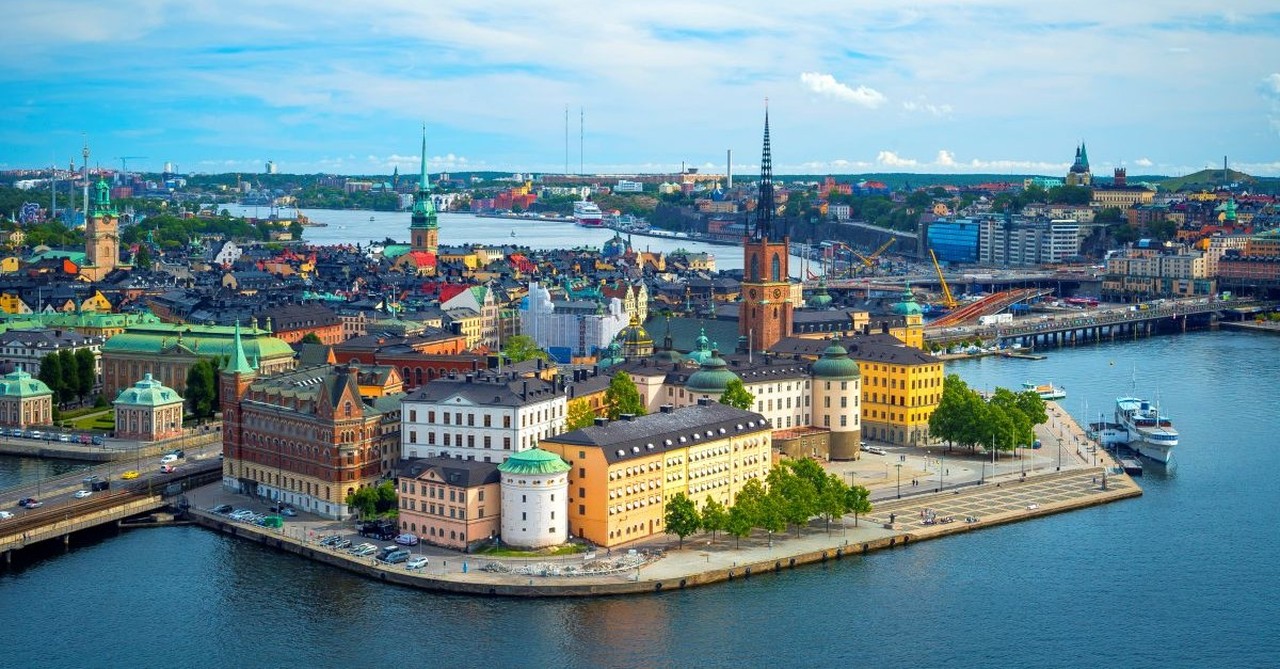5 Ways a Visit to Sweden Can Help Us Learn More about God

People around the world often celebrate Sweden for its natural beauty and Swedish people for their creativity. From the ways people use their creativity and celebrate in Sweden to the ways they build caring communities, we can learn a lot about God from how the Swedish people express their faith. Here’s what I learned about God from traveling to Sweden.
1. Expressing Our God-Given Creativity Is Important
Sweden shows how a culture can embrace and express God-given creativity well. From groundbreaking inventions to renowned design, Swedish people have contributed many innovations to people around the world. God has given us the ability to be creative because we reflect his creativity as the Creator who made everyone and everything. Ephesians 2:10 reveals: “For we are God’s handiwork, created in Christ Jesus to do good works, which God prepared in advance for us to do.” This verse reminds us that we are made by a creative God, and our own acts of creation can be ways we worship and serve God.
The spirit of invention thrives in Sweden. Minecraft is a Swedish video game that millions of people use to build entire worlds from their imaginations. Bluetooth, a technology that connects our electronic devices to make communication easier, is another popular Swedish invention. Sweden has also contributed significantly to medical advancements. Swedish people invented ultrasound imaging, the pacemaker for heart patients, and dialysis for kidney patients. Many more useful inventions have come from Sweden, including the adjustable wrench, which is a simple yet essential tool for all sorts of projects.
The Swedish music scene is equally innovative. Swedish artists push boundaries and contribute distinct voices to the global cultural landscape. Swedish House Mafia, for instance, brought a fresh sound to electronic dance music, with unique beats that continue to attract audiences worldwide. Music plays an important role in Swedish culture. Swedish people often attend concerts, and students get a strong music education in Swedish schools. Historically, the Lutheran Church in Sweden placed a strong emphasis on congregational singing, and I got to enjoy hearing some of those traditional worship songs sung a cappella by two singers – one male, and one female – who captivated me as they harmonized their voices while praising God. Psalm 150:6 encourages us to praise God through singing: “Let everything that has breath praise the Lord. Praise the Lord!” Music is one of the most powerful ways we can all worship God. Sweden’s creative music can inspire us to celebrate creative ways of connecting with God, our Creator.
Swedish culture also celebrates creativity in the kitchen. Swedish chefs are known for presenting dishes in new and exciting ways. Eating in Swedish restaurants, I couldn’t help but think of the “Swedish Chef” character from the Muppets, who enjoyed the creative process in his kitchen with lots of humor. The Swedish food I enjoyed didn’t seem at first like it would go together (for example, lingonberries with potatoes), but the flavors all complemented each other well and surprised me with new tastes to enjoy.
Finally, Swedish design is instantly recognizable for its simple functionality. IKEA has revolutionized home furnishings by producing designs that people can easily put together at home to serve multiple purposes. Volvo cars are known for their safety and thoughtful engineering.
Sweden’s culture of creativity reminds us that our ability to create comes from our Creator, who wants us to use our creativity to do good works in our world.
Photo Credit: ©GettyImages/Johner Images
2. We Can Always Celebrate How God Works in Our Lives

2. We Can Always Celebrate How God Works in Our Lives
SLIDE 1 OF 4
Sweden fills the calendar of each year with lots of holidays. Despite declining formal church attendance, Swedish people still widely celebrate numerous Christian holidays throughout the year, from Advent and St. Lucia’s Day in the winter to Easter and Pentecost during the spring. They also find lots of other reasons to celebrate, including Midsummer, since only the summer season is warm in Sweden, and they want to make the most of it. Sweden also celebrates many different food-related holidays, such as Cinnamon Bun Day, Waffle Day, and Cheese Doodle Day.
This shows us that there’s always something to celebrate, especially when we remember that God is constantly pouring new blessings into our lives. We don’t need a big event as a reason to celebrate; we should celebrate every single day, because God shows up for us every day. Psalm 118:24 points out the importance of rejoicing about what God has done each day: “The Lord has done it this very day; let us rejoice today and be glad.” God is always working for our good, and he deserves our praise and celebration in every season of life. The culture of celebration in Sweden encourages us to notice the wonder of God’s work in our daily lives and to celebrate it.
When we make an effort to look for God’s blessings each day, we begin to see God’s faithfulness in every part of our lives. We can find evidence of God’s faithfulness in all sorts of answered prayers and in simple yet powerful blessings like a good night’s sleep, guidance to make the best decision in a situation, or the strength to get through a difficult task. God is constantly helping us, so we always have a reason to thank God. As 1 Thessalonians 5:18 reminds us: “Give thanks in all circumstances; for this is God's will for you in Christ Jesus.” Regularly celebrating God’s work builds our trust and strengthens our faith by reminding us of God’s unlimited love and power!
Photo Credit: ©GettyImages/Halfpoint
3. God Gives Us Valuable Opportunities to Rest Together

3. God Gives Us Valuable Opportunities to Rest Together
SLIDE 2 OF 4
Fika is a cherished Swedish well-being practice of taking an afternoon break to enjoy warm drinks (like coffee and tea) and baked goods while talking with friends, family, or colleagues at work. Unlike a quick grab-and-go coffee break, fika is a dedicated time to step away from tasks and genuinely connect with other people. Fika gives Swedish people valuable opportunities to find fresh energy in the afternoon by truly resting together, so they can tackle the rest of the day well.
Jesus modeled the importance of rest for us during his earthly life. He encourages us in Matthew 11:28-30: “Come to me, all you who are weary and burdened, and I will give you rest. Take my yoke upon you and learn from me, for I am gentle and humble in heart, and you will find rest for your souls. For my yoke is easy and my burden is light.” The practice of fika in Sweden shows us the importance of including dedicated time for rest in our daily schedules.
Fika also shows us that it’s important to enjoy rest together with the people we know. Hebrews 10:24-25 urges us: “And let us consider how we may spur one another on toward love and good deeds, not giving up meeting together, as some are in the habit of doing, but encouraging one another – and all the more as you see the Day approaching.” Fika reminds us that God wants us to enjoy healthy relationships, which we can build the best when we take the time to talk together while we’re resting (rather than when we’re stressed and distracted). It teaches us that our human value doesn’t come from how productive we are, but from how loved we are by God, who loves us completely and unconditionally. When we take well-being breaks together, we can find the renewal and revival we need to live well.
Photo Credit: ©Getty Images/ViewApart
4. God Calls Us to Be Content in Creation

4. God Calls Us to Be Content in Creation
SLIDE 3 OF 4
A popular Swedish concept is lagom, which essentially means “not too much, not too little; just right.” Lagom involves being content to live with balance and moderation in all situations, from avoiding excessive materialism to not overworking. In our fallen world that’s often driven by consumerism, Swedish lagom challenges us to find fulfillment by appreciating what we have and living within wise boundaries. It pushes back against an unhealthy mindset of always striving for something else we want rather than living with contentment.
Philippians 4:11-13 discusses the importance of being content when it says: “I am not saying this because I am in need, for I have learned to be content whatever the circumstances. I know what it is to be in need, and I know what it is to have plenty. I have learned the secret of being content in any and every situation, whether well fed or hungry, whether living in plenty or in want. I can do all this through him who gives me strength.” Lagom in Swedish culture lines up well with this biblical principle. It encourages us to stop worrying about what we lack, trust God to provide what we need, fully appreciate what God gives us, and feel at peace with what’s “just right.”
An important part of living a lifestyle of lagom is taking good care of God’s creation. Swedish people love to spend time in nature for inspiration. They recognize that nature teaches us about God, so they appreciate nature as a sacred place and practice lagom there, using natural resources responsibly and minimizing waste to help make sure there’s enough for everyone. In Sweden, people care about God’s call to manage creation wisely. As Psalm 24:1 proclaims: “The earth is the Lord’s, and everything in it, the world, and all who live in it.” Swedish people embrace a lifestyle of contentment that helps them care for creation well by living in harmony with it, and with each other.
Photo Credit: ©GettyImages/demaerre
5. God Calls Us to Justice and Compassion

5. God Calls Us to Justice and Compassion
SLIDE 4 OF 4
A strong sense of samhällsansvar – social responsibility – is common in Swedish daily life and public policies. Swedish people care for each other through comprehensive social safety nets, accessible healthcare, and a general expectation that citizens contribute to the common good. While these policies today come from the Swedish government, for centuries, Swedish churches were the main institutions providing caring support for poor and marginalized people. The church there emphasizes treating all people with dignity because we’re all created in God’s image. Micah 6:8 tells us: “He has shown you, O mortal, what is good. And what does the Lord require of you? To act justly and to love mercy and to walk humbly with your God.” The Swedish commitment to a fair and compassionate society points to God’s desire for justice and mercy to inspire us to treat each other justly and compassionately.
Jesus frequently taught about caring for people in our society who need our help. He says in Matthew 25:40: “…Truly I tell you, whatever you did for one of the least of these brothers and sisters of mine, you did for me.” The early church modeled caring for each other well (Acts 2:44-45). The Swedish emphasis on samhällsansvar can challenge us to consider how well we’re really caring for the poor and marginalized people in our society, and inspire us to do our best to put justice and compassion into action.
In conclusion, traveling to Sweden can help us understand more about God through creativity, celebrations, rest, contentment, justice, and compassion. It can inspire us to take fresh approaches to all of those important parts of living out our faith.
Photo Credit: ©iStock/Getty Images Plus/Xesai

Originally published August 06, 2025.







